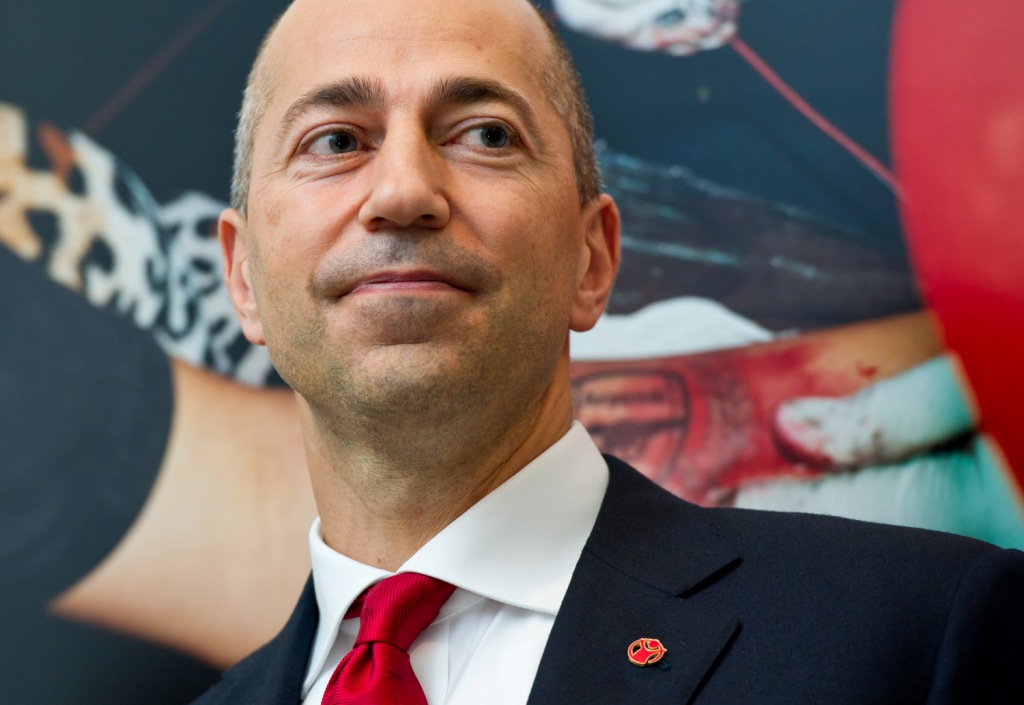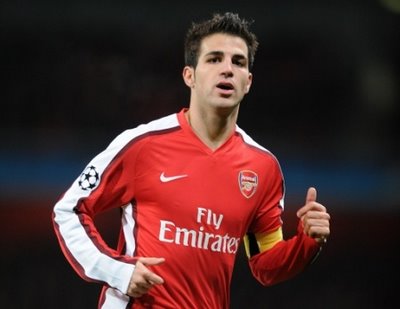By David Gold
March 1- Arsenal have recorded a pre-tax profit of £49.5 million (€58 million/$79 million) for the six months to November 30, 2011.
Much of that can be put down to the £63 million (€74 million/$100 million) brought in from player sales during the six month period.
Ironically, the positive financial results will draw ire from fans angry that much of the profit appears to be from the sale of players such as Cesc Fàbregas (pictured) and Samir Nasri at the start of the season.
Since their departure, as well as that of Gaël Clichy, Arsenal have endured one of their worst seasons in recent history.
They are struggling to finish in the top four and win a place in the Champions League next season following an inconsistent campaign.
Fans are unlikely to enjoy reading about the club’s profits when the team are struggling on the pitch, though Arsenal’s board will be relieved that any vitriol will be calmed by these figures coming in the wake of arguably their best performance of the season on Sunday (February 26), when they beat fierce local rivals Tottenham Hotspur 5-2.
The club argue that they invested more in player wages and new signings during the same period than brought in, but the financial figures were not all good news.
Arsenal made £3.2 million (£3.8 million/$5.1 million) from property development during the period, compared to £22.5 million (€26.5 million/$36 million) the previous year.
The club’s pre-season tour of Malaysia and China was given some credit in Arsenal’s revenues during the period, the first of its type undertaken by Arsène Wenger’s men.
However, failure to reach the Champions League would cost Arsenal up to £45 million (€53 million/$71 million) next season.
Though Arsenal would seem to be safe from the risks of failing to meet UEFA’s financial fair play rulings, the accounts would suggest that not qualifying for the Champions League would significantly dent their ability to invest in new players next season.

Arsenal’s chief executive Ivan Gazidis (pictured) said: “It’s important to acknowledge that the most important thing for this football club, the most important thing for our fans, and the most important thing for the board and the people that work at the club is how we do on the pitch.
“We also have to keep something in reserve in case things don’t go our way.
“There is money available, we don’t talk about an exact figure – and there’s a very good reason why we don’t put an exact figure on that – because it would impact on our negotiating position.
“We have to invest efficiently, we have to invest sensibly.
“We do spend all of the money we generate – we do invest it in the squad.
“That doesn’t mean we get every decision right – we don’t.
“Football clubs are moving towards more sustainable models.
“UEFA is mandating that they do that and they’re doing it any way.
“The results when some clubs live outside their means can be disastrous.”
Contact the writer of this story at zib.l1745243611labto1745243611ofdlr1745243611owedi1745243611sni@d1745243611log.d1745243611ivad1745243611
Related stories
February 2012: Rangers’ Whyte sells club’s historic Arsenal shares to Usmanov
October 2011: Get used to seeing us around, says Arsenal owner Kroenke
October 2011: Usmanov sparks boardroom battle in bid to take 30 per cent of Arsenal shares
October 2011: Arsenal can cope without the Champions League, claims Gazidis
June 2011: Usmanov nears 30 per cent stake in Arsenal required to access club accounts

